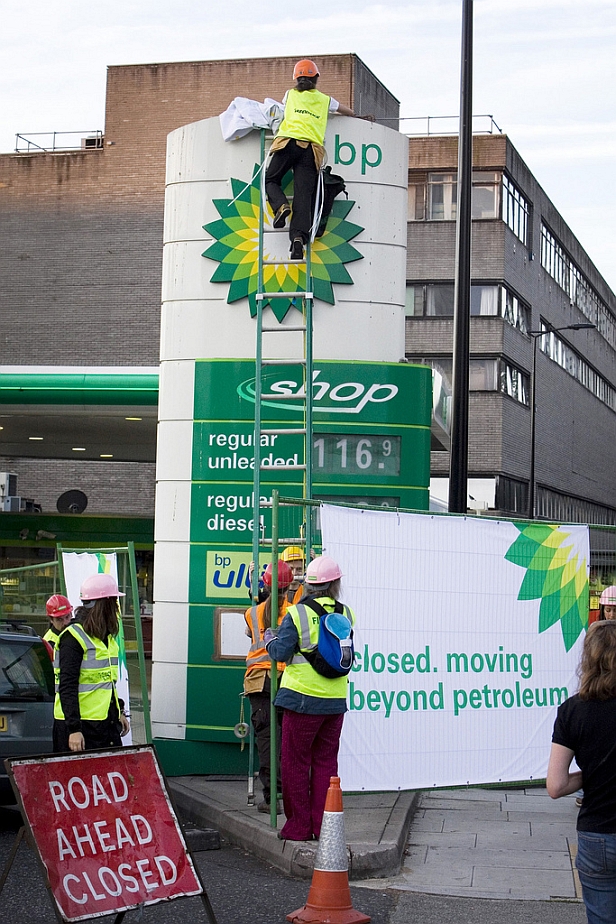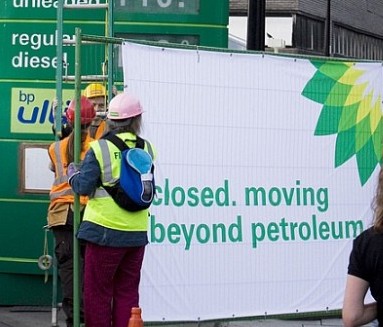Greenpeace U.K. shut down at least 30 BP stations in London on Tuesday in one of the more ballsy displays of civil disobedience against the energy giant. Activists fanned out to as many as 50 BP stations — the exact number isn’t clear — and posted banners that said, “Closed: Moving beyond petroleum.”
They also pulled safety switches that cut off fuel supplies at the stations — and removed the switches so they couldn’t be turned back on again. Here’s the collection of switches they gathered:
 Courtesy Greenpeace
Courtesy Greenpeace
The group chose today to coincide with the release of BP’s quarterly report — showing a record $17 billion loss — and the announcement that Bob Dudley would replace Tony Hayward as CEO.
 Courtesy Greenpeace
Courtesy Greenpeace
Said Greenpeace International Executive Director Kumi Naidoo:
Bob Dudley should overturn current plans to extract oil from risky deep-water wells off Libya and in the Arctic, where a spill could have consequences even more devastating than in the Gulf, as well as from the tar sands of Canada. A change in leadership is a key opportunity for BP to cut its losses in more ways than one, by turning away from high-cost and environmentally reckless sources of oil, like deepwater drilling and Canadian tar sands, towards an energy revolution based on clean energy sources.
British environmentalists have history of more rowdy civil disobedience than American greens, with the occasional exception of Appalachian mountain defenders. But with the effort to pass a U.S. climate and energy bill dying with a whimper last week, maybe it’s time for American activists to take up more forceful tactics.
Matt Yglesias suggested as much last week, pointing out that actual civil disobedience is different from holding signs at protests or carefully staging symbolic arrests:
There were protests and sign-holdings associated with the Civil Rights Movement, but the core of that era’s civil disobedience was, well, civil disobedience. People actually going and doing illegal stuff and forcing the authorities to come out and stop them. The idea was to (a) demonstrate the extreme depth of the commitment the activists possessed, (b) dramatize the injustice of Jim Crow in a visceral way, and (c) create an atmosphere of social crisis such that fence-sitters could no longer say “well, this just isn’t a good time to address these issues.” The movement was causing trouble, and would have to be dealt with by either crushing it with repression or else addressing its concerns.
Put another way, transactional politics — cutting deals to pass a clean energy bill — have had their chance and failed for the time being. Transformational politics — trying to change the way the public perceives the energy issue — may be gaining currency.




